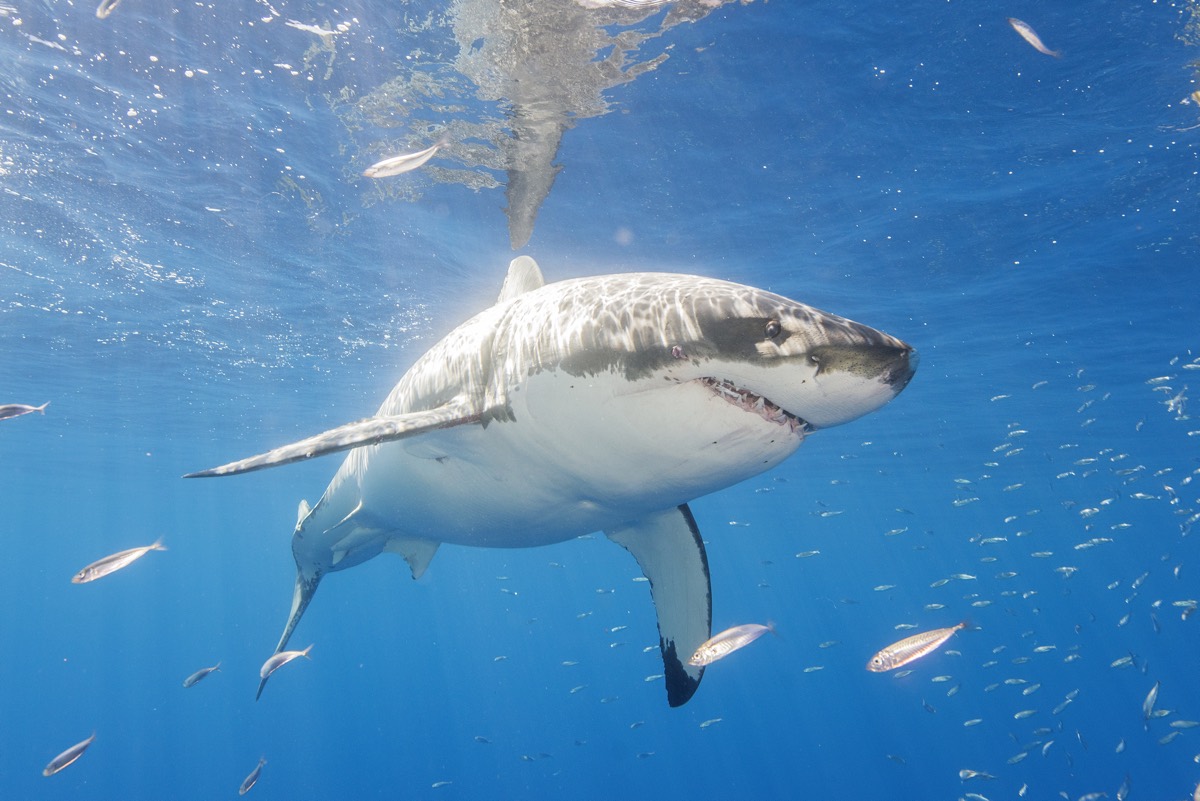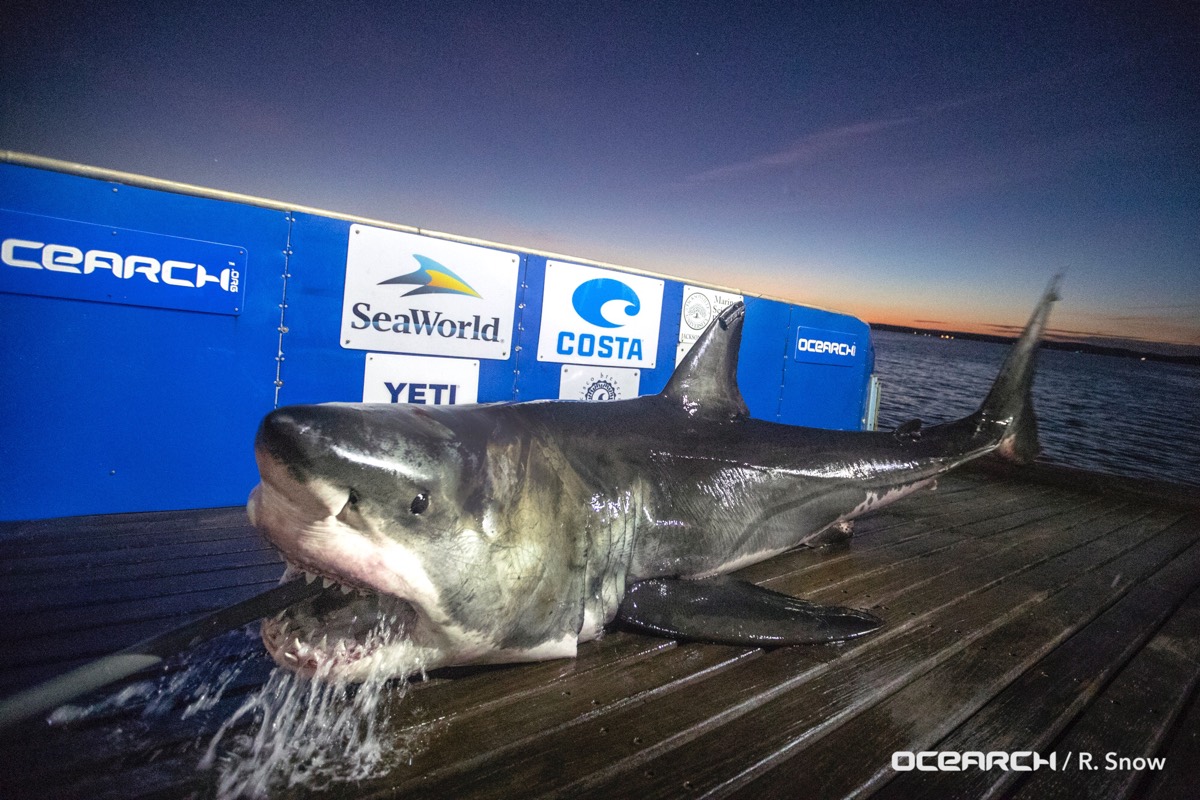An Enormous Great White Shark Is Cruising Toward the Outer Banks. But There's Nothing to Fear.

A shark longer than a Volkswagen Beetle is hanging out near South Carolina — but there's nothing to fear.
The nonprofit organization OCEARCH reported May 9 that a 15-foot (4.6 meters) great white shark dubbed "Luna" was over the Charleston Bump, an undersea bank about 80 miles (129 kilometers) southeast of Charleston, South Carolina. A smaller shark, "Caroline," who clocks in at 12 feet, 9 inches (3.9 m), was hanging out closer to shore at South Carolina's Edisto Beach.
According to The Charlotte Observer, Luna was headed northward to the Outer Banks, though of course there is no telling what a 2,137-lb. (969 kilograms) shark is going to do next. Caroline, the other shark seen near South Carolina, took a turn back south and was off the coast of Georgia as of May 13, according to OCEARCH. [Image Gallery: Great White Sharks]
The sharks' movements are known because OCEARCH captured, weighed, tagged and released them. Luna is the second-largest shark ever tagged by the organization. She was caught in October 2018 using a thick fishing line near Lunenburg, Nova Scotia, and the event was captured on video. Scientists named the shark, the first mature adult female they'd ever tagged, in honor of the people of Lunenburg.
The tags affixed by OCEARCH convey information on location, depth, temperature and light levels using satellite and acoustic signals sent to ocean-bottom receivers. The researchers also take blood and tissue samples when the sharks are first caught.

Since being tagged, Luna has ranged up and down the east coast of North America, reaching as far south as the Northern Bahamas. Great white sharks range widely in search of food, according to OCEARCH. The nonprofit's tracking of great whites has shown that they seem to cluster off North Carolina, South Carolina, Georgia and the east coast of Florida in the winter, a region dubbed the Northwest Atlantic Shared Foraging Area.
In other words, Luna's presence along the Carolina coast is no surprise.
Sign up for the Live Science daily newsletter now
Get the world’s most fascinating discoveries delivered straight to your inbox.
Despite their omnipresence near populous coastline, sharks rarely bother humans. According to the University of Florida, shark attacks went down in 2018 compared with the year before, and unprovoked attacks were remarkably infrequent, comprising only 66 out of 130 total cases worldwide. (Another 15 of those attacks were unconfirmed or unlikely to be that of a shark, and one actually happened inside a public aquarium.) The United States had one fatal shark attack in 2018, resulting in the death of a 26-year-old named Arthur Medici near Cape Code, Massachusetts. The attack, by a great white, was the first fatal shark attack in Massachusetts in 82 years, according to National Geographic.
- In Photos: Great White Sharks Attack
- In Photos: Spooky Deep-Sea Creatures
- Images: Sharks & Whales from Above
Originally published on Live Science.

Stephanie Pappas is a contributing writer for Live Science, covering topics ranging from geoscience to archaeology to the human brain and behavior. She was previously a senior writer for Live Science but is now a freelancer based in Denver, Colorado, and regularly contributes to Scientific American and The Monitor, the monthly magazine of the American Psychological Association. Stephanie received a bachelor's degree in psychology from the University of South Carolina and a graduate certificate in science communication from the University of California, Santa Cruz.










